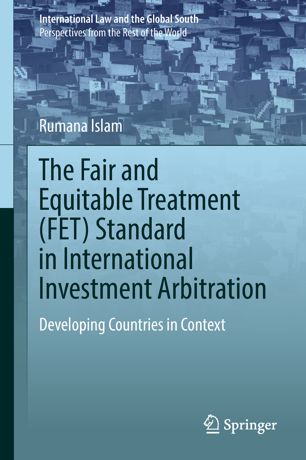

Most ebook files are in PDF format, so you can easily read them using various software such as Foxit Reader or directly on the Google Chrome browser.
Some ebook files are released by publishers in other formats such as .awz, .mobi, .epub, .fb2, etc. You may need to install specific software to read these formats on mobile/PC, such as Calibre.
Please read the tutorial at this link: https://ebookbell.com/faq
We offer FREE conversion to the popular formats you request; however, this may take some time. Therefore, right after payment, please email us, and we will try to provide the service as quickly as possible.
For some exceptional file formats or broken links (if any), please refrain from opening any disputes. Instead, email us first, and we will try to assist within a maximum of 6 hours.
EbookBell Team

5.0
60 reviewsThis book presents comprehensive information on a range of issues in connection with the Fair and Equitable Treatment (FET) standard, with a particular focus on arbitral awards against host developing countries, thereby contributing to the available literature in this area of international investment law. It examines in detail the interpretation of the FET standard of key arbitral awards affecting host developing countries, demonstrating the full range of interpretation approaches adopted by the current investment tribunals. At the same time, the book offers valuable practical guidance for counsels/scholars representing host developing countries in investment arbitration, where balancing the competing interests of the foreign investors and the host developing countries in investment disputes poses a complex challenge.
The book puts forward the pressing need for a re-conceptualized interpretation of the FET standard in tune with the developmental issues and challenges faced by host developing countries, recognizing these countries’ particular perspectives as an important and relevant aspect of investment disputes (often ignored by the current investment tribunals), while continuing to ensure reasonable protections for foreign investors and therefore serving the needs of the system as whole. The findings presented here will greatly benefit host developing countries engaged in investment arbitration. In addition, the book offers an insightful guide for all researchers whose work involves investment law and investment arbitration issues.